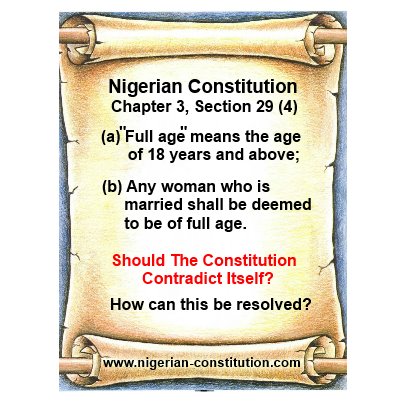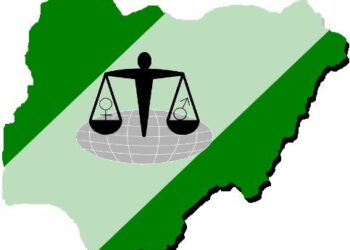[vc_row][vc_column][vc_column_text] The constitution pops up every now and then in discussions, either with reference to a country, an organization or in some other context. Without mincing words, the constitution is a powerful instrument used by ALL the countries in the world, and some organizations to explicitly define functions, limitations, powers, responsibilities, punishments and so many other parameters as may be required, that need explicit definition for the smooth running of a country or an organization.
The constitution pops up every now and then in discussions, either with reference to a country, an organization or in some other context. Without mincing words, the constitution is a powerful instrument used by ALL the countries in the world, and some organizations to explicitly define functions, limitations, powers, responsibilities, punishments and so many other parameters as may be required, that need explicit definition for the smooth running of a country or an organization.
Whatever definition is given to the individual parameters, accepted by the majority and the resolution signed by the empowered authority, that definition becomes binding on everyone within the constitution’s area of jurisdiction, thereby making it a LAW. The parameters are the constitutional provisions, and could be just about any subject agreed upon by the stakeholders as requiring an explicit definition, general consensus and agreement.
Before diving in further, let us examine the dictionary definition of Constitution and Law, using the Mirriam-Webster online dictionary.
Constitution:
- The system of beliefs and laws by which a country, state, or organization is governed
- A document that describes this system
- An established law or custom
- the mode in which a state or society is organized; especially : the manner in which sovereign power is distributed
- the basic principles and laws of a nation, state, or social group that determine the powers and duties of the government and guarantee certain rights to the people in it
- a written instrument embodying the rules of a political or social organization
Law:
- The whole system or set of rules made by the government of a town, state, country, etc. a
- A binding custom or practice of a community : a rule of conduct or action prescribed or formally recognized as binding or enforced by a controlling authority
- The whole body of such customs, practices, or rules
- A rule or order that it is advisable or obligatory to observe
The important thing to note about the constitution is that:
- It is primarily meant for the people’s interest and welfare;
- It is enacted by the people via their representatives;
- It will also be enforced by people, via law enforcement agencies.
As humans, however, we are inherently prone to divergent and sometimes even conflicting opinions of what is individually considered to be right. This could be attributed to people’s different growth backgrounds, educational levels, life experiences, personal / group interests, religious affiliations or business interests as well as sentiments and emotions.
Considering these inherent vulnerabilities, it is therefore inevitable that some form of standard is adhered to, in the process of making laws for the constitution. The majority of the laws in the constitution will fall into any of the three general categories: the people, the State or property.
The Fundamental Human Rights: this refers to those rights that are inherent to every individual, by virtue of being human and alive. These include right to life, freedom, liberty, fair hearing, and many more, that altogether total thirty (30) in number, as recognized by the United Nations. For a full list of them, visit the page on Fundamental Human Rights.
The Basic Laws of Thought (the three laws of logic): Wikipedia explains this as the fundamental axiomatic rules upon which rational discourse itself is often considered to be based. It goes further to include that they are taken as laws that guide and underlie everyone’s thinking, thoughts, expressions, discussions, etc. There are three of these laws: the law of identity, the law of excluded middle and the law of non-contradiction.
- The law of identity: this law talks about the uniqueness of an object or a thing. In other words, a mango can only be a mango, and cannot be an orange. If a particular fruit is a mango, then it cannot be said that it is not a mango, or said to be an orange. It will always be a mango, maintaining that identity and will always remain consistent and true to only that description.
- The law of excluded middle: this law infers that a proposition can either be “true” or “not true”. A response to the question of whether one is hungry can either be a “yes”, or “no”. This law doesn’t recognize a response such as “somehow hungry” or “kind of hungry”.
- The law of non-contradiction: The law of non-contradiction is about avoiding contradictions. For instance, if a country’s law defines adulthood age to start from eighteen (18) years, then it is contradictory for the country to have another law that will recognize a girl who is less than eighteen (18) years old as an adult, even if such a girl is said to be married. (See the image below).
Implementing these proffered standards when making laws for the constitution of a country will ensure that the constitution is aligned to its primary objective, which is to protect people’s rights and welfare; is unambiguous; logical and concise, thereby eliminating chances of litigation.
Since the constitution is a compilation of laws made by man for man, it is within man’s power, therefore, to make it right. Making it right means making it consistent with people’s best interests and non-confusing.
SUMMARY: Below is the summary of the points covered in this post.
- We understood that the constitution is a compilation of laws for governing a country or an organization.
- Established that these laws in the constitution were consciously created by people, who were elected by people to do so, thereby making the constitution a creation of man.
- Established that the laws in the constitution are vulnerable to error(s), since they are made by human beings who themselves have an inherent error capacity.
- Proffered means to 1) make the constitution consistent with people’s fundamental rights and welfare, as well as 2) have the constitution be as much as possible, non-contradictory and unambiguous.
Don’t forget to download your free copy of the Nigerian Constitution, if you haven’t yet: www.nigerian-constitution.com
References: http://www.merriam-webster.com/dictionary/constitution
http://www.merriam-webster.com/dictionary/law[/vc_column_text][/vc_column][/vc_row]















